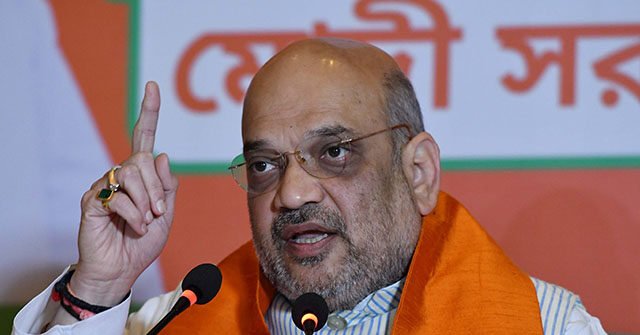Canadian Deputy Foreign Affairs Minister David Morrison on Tuesday accused Indian Home Minister Amit Shah, a close ally of Prime Minister Narendra Modi, of masterminding plots to kill Sikh separatists on Canadian soil.
Morrison initially teased the accusation in a leak to the Washington Post on October 14. Speaking as an anonymous “senior Canadian official,” Morrison accused the Indian government of assassinating Sikh separatist leader Hardeep Singh Nijjar in the parking lot of his Vancouver temple in June 2023. He said Shah was the “senior official in India” mentioned in conversations between Indian diplomats about surveillance operations and assaults on Sikhs in Canada.
Canadian officials reportedly presented their allegations about Shah to Indian national security adviser Ajit Doval at a meeting in Singapore. Canada said Shah was using the criminal network headed by imprisoned gang boss Lawrence Bishnoi to conduct operations on Canadian soil.
Morrison confirmed to the Canadian Parliament on Tuesday that he was the source for the Washington Post story. He said he leaked the intelligence in response to a reporter who asked if Amit Shah was the senior Indian official alluded to in Canada’s public allegations.
“The journalist called me and asked if it was that person. I confirmed it was that person,” he said.
Morrison did not disclose any evidence to back up his accusation that Amit Shah masterminded the Nijjar assassination. Canadian Prime Minister Justin Trudeau, who touched off a major diplomatic crisis in September 2023 by publicly accusing the Indian government of murdering Nijjar, admitted to the Canadian Foreign Interference Commission earlier this month that he has no “hard evidence” to back up his charges.
Indian officials have dismissed Canada’s allegations as “absurd” and “preposterous,” and complained the Canadians have not shown them any evidence.
Canada expelled six Indian diplomats on October 15, accusing them of being linked to the Nijjar plot and other “clandestine activities.” India responded by expelling six Canadian diplomats. The Royal Canadian Mounted Police (RCMP) said they do have evidence to back up their charges against the six expelled diplomats.
Amit Shah (full name Amitbhai Anilchandra Shah) is a very big fish, arguably the second highest-ranking official in the current government after Prime Minister Modi. The two have been close friends and allies for over twenty years, both hailing from the same state of Gujarat.
Shah has been in politics for most of his life. His gifts as a campaign strategist were a major factor in the rise of Modi’s Hindu-nationalist BJP party, first becoming its president in 2014.
One of Shah’s key innovations was leveraging Modi’s personal popularity into huge recruiting drives for the BJP, whose membership swelled under his presidency. He assumed the powerful post of Home Minister in 2019, after the biggest parliamentary victory in BJP’s history, and is often touted as Modi’s likely successor in the top office.
Shah was Modi’s point man for ending the autonomy of the restless Jammu-Kashmir region in 2019 and he handled the media after India launched retaliatory strikes against militants on Pakistani soil in 2016 and 2019. He said in 2021 that those strikes were proof that India had become a world-class military power.
“For the first time our defense policy came out of the shadows of foreign policy. We made it clear that we want peace with everyone … but you have to behave peacefully with us too,” he said.
Shah was arrested in 2010 by India’s Central Bureau of Investigation (CBI), roughly equivalent to the American FBI, on charges that he was connected to the wrongful death of a gangster and alleged terrorist named Sohrabuddin Sheikh. He resigned from his office and spent three months in prison, while insisting the charges had been fabricated by the political opposition. He was acquitted of the charges in 2014.
Shah was the home minister and director of police in Gujarat at the time, working under Modi, who was chief minister of the state. Sohrahbuddin Sheikh and one of his top henchmen were killed in a shootout with police in November 2005, and his wife was killed in a similar incident a few days later.
Critics said these deaths were “fake encounters,” or carefully-staged extrajudicial killings, staged to get rid of suspects who the police were having difficulty prosecuting, or who had become inconvenient to powerful special interests. Shah insisted the police acted appropriately and boasted of the great strides made against terrorism and organized crime in Gujarat under his and Modi’s leadership.
The Modi government has resisted waiving diplomatic immunity for its expelled diplomats at Canada’s request, so it seems highly unlikely that it would hand Shah over for questioning.
